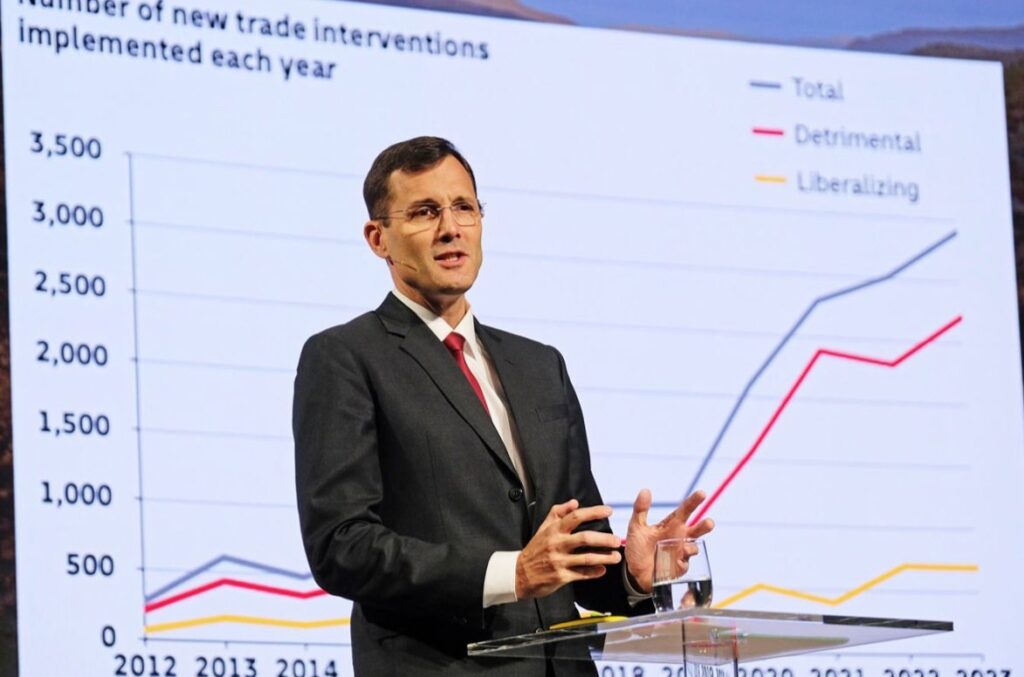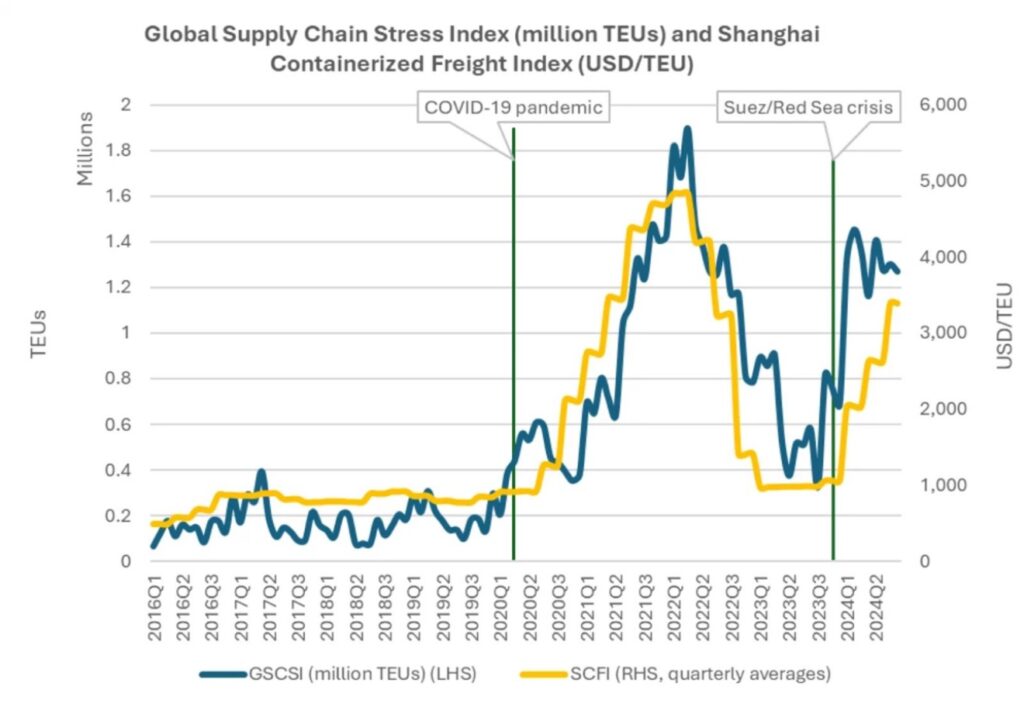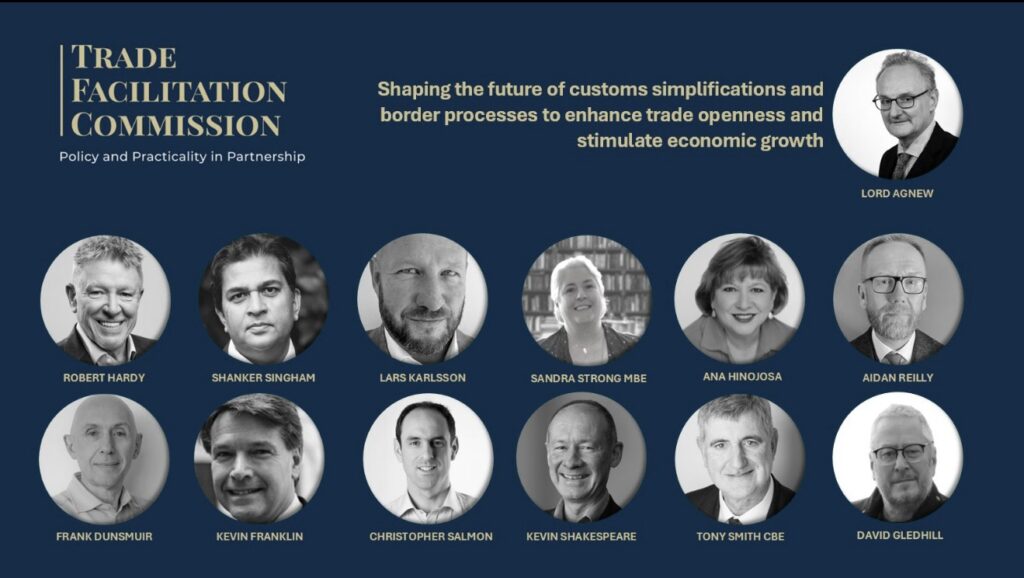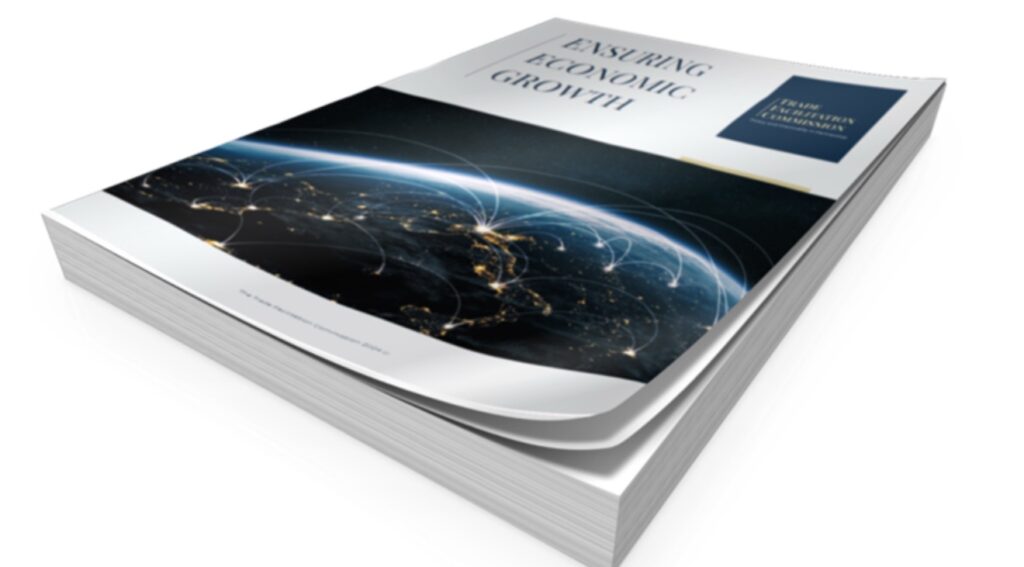What’s the state and future of global trade? That was one of the central topics we discussed at DHL’s GoTrade Summit 2024. Once again, it was an excellent platform for a thought-provoking exchange with experts from private and public organizations.

DHL CEO Global Business Services Tobias Meyer, said at the newting and concluded afterwards, that
Global trade has had it easier in the past. For about 10 years, the number and impact of trade-restricting actions have outpaced those that liberalize trade relations. Despite that, #globaltrade remains remarkably resilient overall – showing how essential and economically beneficial trade has become. However, trade patterns are changing: Trade within and out of Asia continues to grow dynamically, while trade between China and the United States has seen a moderate decline.
It’s important to remember that globalization and global trade are important pillars of economic development, innovation, and wealth creation. Trade has helped to fight inflation and make goods more affordable. It is also hard to see how the world can benefit from advances in pharma, medical devices, IT, AI, and agriculture tech without international trade.
Excellent new tool developed by The World Bank: “The COVID-19 shock prompted us to develop a new index of supply chain stress”.

Read about it here: https://lnkd.in/emcSQyb7
Trade facilitation could unlock an increase of up to £3,500 in GDP per capita per UK household, bringing greater prosperity through more efficient border processes and reduced friction for businesses.
The Trade Facilitation Commissions (TFC) report “Ensuring Economic Growth’ was launched this week.

You can read the Press Release here below and download your electronic copy of the report here below.
”Trade facilitation is not a luxury—it’s an essential driver of growth. By embracing digital tools, simplifying customs, and empowering trusted traders, we can transform the UK’s trade landscape and secure a prosperous future for businesses and people alike.”
Lord Agnew, Chairman of the TFC:
The TFC identified four reasons why trade facilitation is urgently needed:
- Economic Growth Crisis: The UK, along with other G7 countries, faces an ongoing economic growth challenge since the Global Financial Crisis.
- Declining EU Trade: Trade with the EU has decreased due to new trade processes, impacting UK businesses.
- Supply Chain Vulnerabilities: COVID-19 disruptions exposed weaknesses in the UK’s understanding of its supply chains.
- Increasing Complexity: With new regulations emerging, particularly from the EU, a more streamlined and manageable trade system is critical to future resilience.

On the TFC website, you can listen to the TFC Podcast explaining the report.
If you want to read the Press Release and download a copy of the report, The Report






You must be logged in to post a comment.